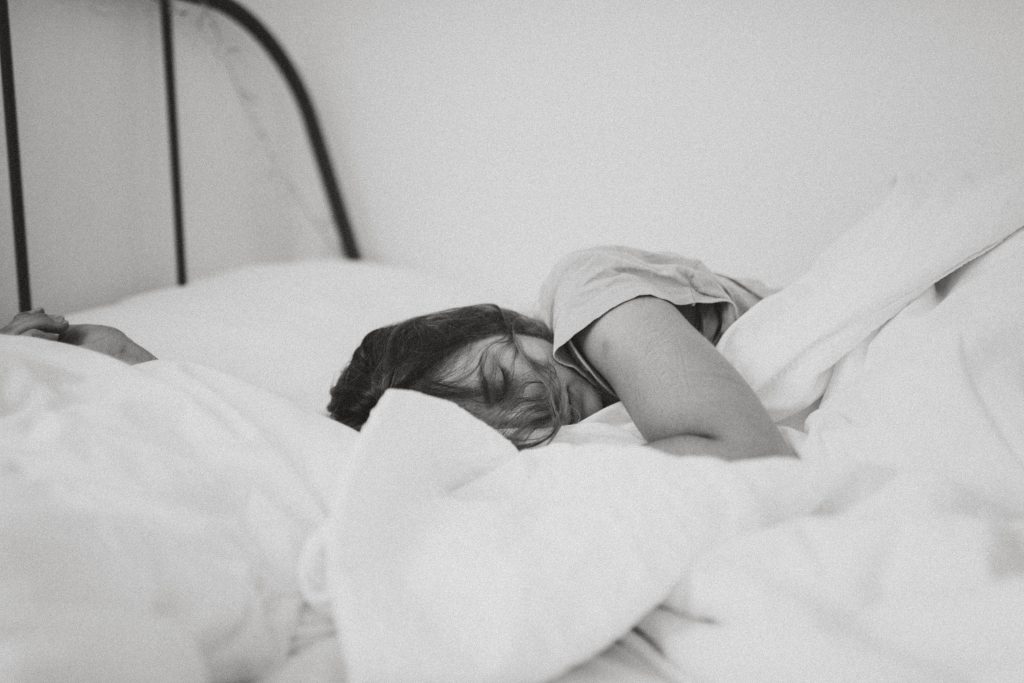A good night’s sleep is something we take for granted until we can’t get one. It’s common for humans to adopt this attitude and the area of health is where we most often fail to be proactive. You should know that the importance of good sleep to good health is seriously underestimated.
The Sleep Council research shows that 40% of people in the UK suffer with sleep problems. That means that nearly half of the people reading this blog article will be interested in suggestions as to how they can improve the quality or duration of their nightly rest. As well as those who actively suffer, there will be people whose relatives struggle; if this is a partner, the sleep issues that affect them can end up in sleep disruption for the person sharing their bed.
People usually want a quick fix to their sleep problem, a pill or a simple habit that can be adopted that will reset the sleep cycle. However, achieving good sleep is like following a recipe and needing to combine many ingredients. Some people use alcohol or recreational drugs which they believe help them sleep. It is not that simple. These types of aid are quickly habit-forming which leads to other problems; research has shown they have serious adverse effects on sleep quality, (see ‘How to Improve Your Sleep’, below). Something adults struggle with is that this change in sleep pattern appears to come on suddenly; in fact, it probably emerges gradually over many years. Everyone remembers being able to sleep like we did as a child and into our early adulthood; when our head touched the pillow, we simply fell asleep.
The answer to the sleep dilemma involves a person making themselves aware of the many factors that lead to sounder sleep. They need to examine their own sleep habits to work out what they might be doing that are making things difficult for them to sleep well. Sometimes concerns and mental health issues affect the way a person sleeps but someone can struggle with getting a good night’s sleep without this sort of problem being the root cause. Some poor sleep is caused by physical health issues, like sleep apnoea. Also, research has shown that low sleep quality can lead to health problems like poor immunity, heart problems, weight gain, depression, dementia, even a pre-disposition to developing cancer. There is a well-accepted belief that a person needs less sleep as they age. This is now disputed. In his book, ‘Why We Sleep’, Matthew Walker, quotes examples of how the health problems we suffer as we age, maybe even ageing itself, are rooted in the diminishing quality of our sleep as we age. It is not that we sleep less well because we age, in fact, we age because we sleep less well
The science behind sleep and sleep hygiene is probably a lot more in depth than you have considered. However, it helps to start with the basics. How old is your bed and is it comfortable? Is your room dark or is there lots of light coming in through the curtains/blinds at night? Is the temperature in your bedroom too hot or too cold? Do you have a television in your bedroom that you watch while lying in bed? Do you spend hours in the evening in contact with other blue light, such as from your mobile phone? Do you like drinks heavy in caffeine and drink these into the afternoon or the evening?
The links to the articles and videos below will give you more information on the physiology of sleep, what benefits we get from sleep, what we can do to help us experience better sleep and where we can go for further information.
‘Why We Sleep’ by Matthew Walker, (Youtube video)
‘8 Common Reasons you’re Struggling to Sleep at Night’ by Malia Jacobson and Victoria Joy on Red
’17 Proven Tips to Sleep Better at Night’ by Rudi Mawer on Healthline
‘How to Sleep Better’ by Melinda Smith, Lawrence Robinson, and Robert Segal on HelpGuide
‘How to Improve Your Sleep’ by Matthew Walker (YouTube video)
‘The Importance of Sleep: 8 Scientific Health Benefits of Sleep + Sleeping Tips’ by The Health Nerd (YouTube video)
’10 Benefits of a Good Night’s Sleep’ by Perk (YouTube video)
‘How Does Caffeine Affect Sleep?’ by Matthew Walker (YouTube video)
‘What Are Sleep Cycles; Everything You Need To Know!’ by Mattress Clarity (YouTube video)

